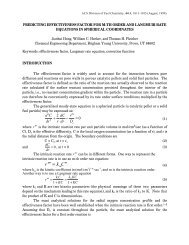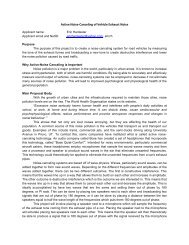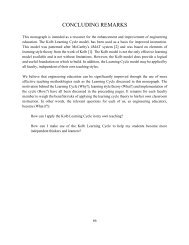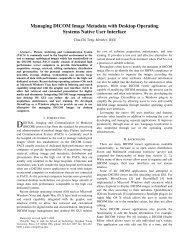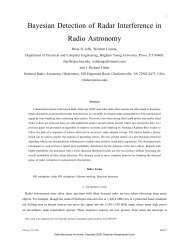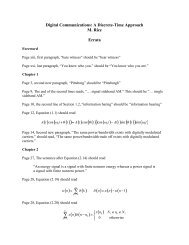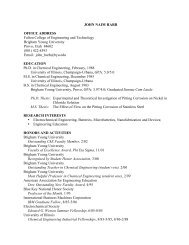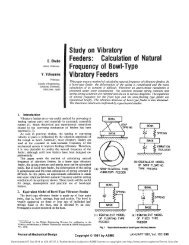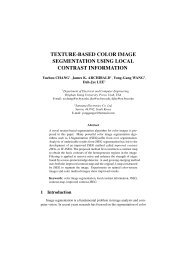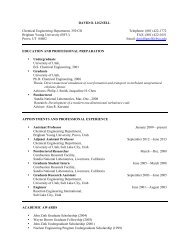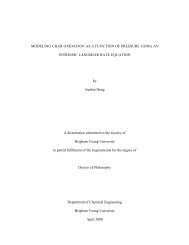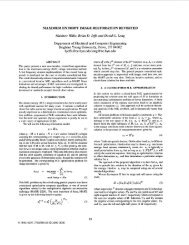NONLINEAR CONTROLLER COMPARISON ON A BENCHMARK ...
NONLINEAR CONTROLLER COMPARISON ON A BENCHMARK ...
NONLINEAR CONTROLLER COMPARISON ON A BENCHMARK ...
Create successful ePaper yourself
Turn your PDF publications into a flip-book with our unique Google optimized e-Paper software.
Chapter 1<br />
Introduction<br />
1.1 Motivation and Problem Description<br />
The reliability and e ectiveness of feedback control systems has been recog-<br />
nized for centuries: they provide a simple and robust way of regulating a large class<br />
of physical systems, and there exists a rich body of mathematical results that enable<br />
the systematic design of feedback control laws. A signi cant limitation of most of the<br />
classic results is that they apply to a rather narrow class of systems { those which can<br />
be modeled by systems of linear di erential equations. Despite the fact that many<br />
physical plants can be linearized, and thus an adequate small-signal control can be<br />
realized for the linearized system, the fact remains that almost all physical systems in-<br />
volve dynamics that cannot be modeled completely by a linear system. Such nonlinear<br />
systems have been the subject of much research in the past two decades researchers<br />
have sought to extend the results obtained for linear plants to non-linear plants.<br />
A good example of this is the search for the nonlinear optimal feedback con-<br />
troller. It is well known that the solution of the optimal linear control problem<br />
depends upon the solution of an algebraic Riccati equation. For the non-linear case,<br />
this result generalizes nicely: the optimal non-linear controller requires the solution of<br />
the Hamilton-Jacobi-Bellman (HJB) equation (which was actually discovered before<br />
the Riccati equations). This partial di erential equation is very di cult to solve,<br />
however, and the quest for a reliable and accurate approximation of its solution is an<br />
open problem. The Successive Galerkin Approximation (SGA) is one such method of<br />
approximation, and the details of its implementation will be described in Chapter 3.<br />
1



